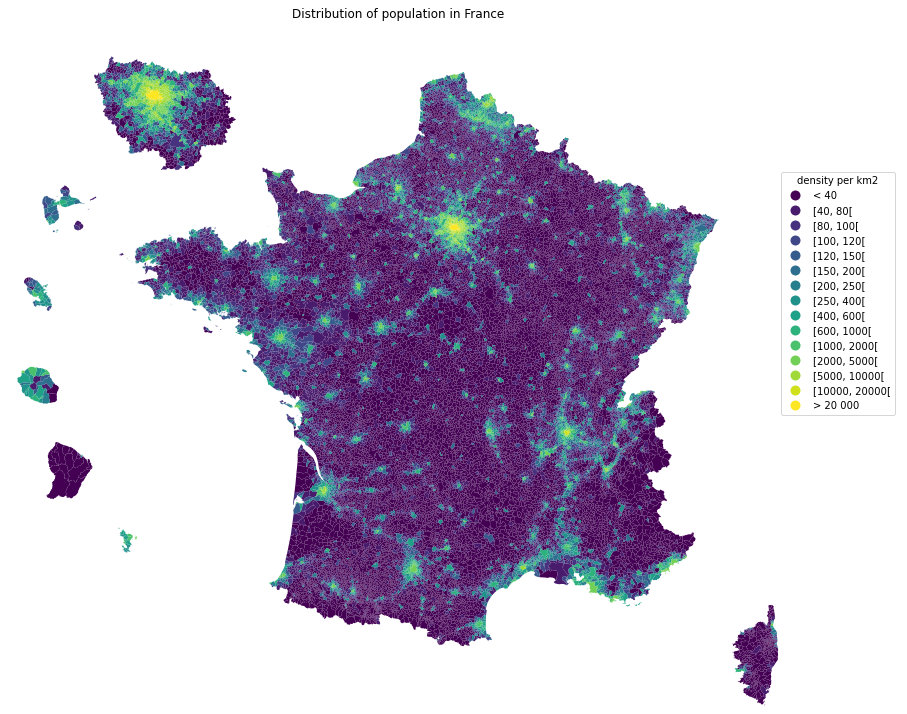
Research
Security News
Malicious npm Packages Inject SSH Backdoors via Typosquatted Libraries
Socket’s threat research team has detected six malicious npm packages typosquatting popular libraries to insert SSH backdoors.
pynsee gives a quick access to more than 150 000 macroeconomic series,
a dozen datasets of local data, numerous sources available on insee.fr,
geographical limits of administrative areas taken from IGN
as well as key metadata and SIRENE database containing data on all French companies.
Have a look at the detailed API page api.insee.fr.
This package is a contribution to reproducible research and public data transparency. It benefits from the developments made by teams working on APIs at INSEE and IGN.
The files available on insee.fr and IGN data, i.e. the use of download and geodata modules, do not require authentication.
Credentials are necessary to access some of the INSEE APIs available through pynsee by the modules macrodata, localdata, metadata and sirene.
API credentials can be created here : api.insee.fr
# Download Pypi package
pip install pynsee[full]
# Get the development version from GitHub
# git clone https://github.com/InseeFrLab/pynsee.git
# cd pynsee
# pip install .[full]
# Subscribe to api.insee.fr and get your credentials!
# Save your credentials with init_conn function :
from pynsee.utils.init_conn import init_conn
init_conn(insee_key="my_insee_key", insee_secret="my_insee_secret")
# Beware : any change to the keys should be tested after having cleared the cache
# Please do : from pynsee.utils import clear_all_cache; clear_all_cache()
get_dataset_list to search what are your datasets of interest and then get the series list with get_series_list.
Alternatively, you can make a keyword-based search with search_macrodata, e.g. search_macrodata('GDP').
Then, get the data with get_dataset or get_seriesget_local_metadata, then get data with get_local_dataget_activity_listget_dimension_list, then use search_sirene with dimensions as filtering variablesget_geodata_list and then retrieve it with get_geodataget_file_list and then download it with download_fileFor further advice, have a look at the documentation and gallery of the examples.

from pynsee.geodata import get_geodata_list, get_geodata, GeoFrDataFrame
import math
import geopandas as gpd
import pandas as pd
from pandas.api.types import CategoricalDtype
import matplotlib.cm as cm
import matplotlib.pyplot as plt
import descartes
import warnings
from shapely.errors import ShapelyDeprecationWarning
warnings.filterwarnings("ignore", category=ShapelyDeprecationWarning)
# get geographical data list
geodata_list = get_geodata_list()
# get departments geographical limits
com = get_geodata('ADMINEXPRESS-COG-CARTO.LATEST:commune')
mapcom = gpd.GeoDataFrame(com).set_crs("EPSG:3857")
# area calculations depend on crs which fits metropolitan france but not overseas departements
# figures should not be considered as official statistics
mapcom = mapcom.to_crs(epsg=3035)
mapcom["area"] = mapcom['geometry'].area / 10**6
mapcom = mapcom.to_crs(epsg=3857)
mapcom['REF_AREA'] = 'D' + mapcom['insee_dep']
mapcom['density'] = mapcom['population'] / mapcom['area']
mapcom = GeoFrDataFrame(mapcom)
mapcom = mapcom.translate(departement = ['971', '972', '974', '973', '976'],
factor = [1.5, 1.5, 1.5, 0.35, 1.5])
mapcom = mapcom.zoom(departement = ["75","92", "93", "91", "77", "78", "95", "94"],
factor=1.5, startAngle = math.pi * (1 - 3 * 1/9))
mapcom
mapplot = gpd.GeoDataFrame(mapcom)
mapplot.loc[mapplot.density < 40, 'range'] = "< 40"
mapplot.loc[mapplot.density >= 20000, 'range'] = "> 20 000"
density_ranges = [40, 80, 100, 120, 150, 200, 250, 400, 600, 1000, 2000, 5000, 10000, 20000]
list_ranges = []
list_ranges.append( "< 40")
for i in range(len(density_ranges)-1):
min_range = density_ranges[i]
max_range = density_ranges[i+1]
range_string = "[{}, {}[".format(min_range, max_range)
mapplot.loc[(mapplot.density >= min_range) & (mapplot.density < max_range), 'range'] = range_string
list_ranges.append(range_string)
list_ranges.append("> 20 000")
mapplot['range'] = mapplot['range'].astype(CategoricalDtype(categories=list_ranges, ordered=True))
fig, ax = plt.subplots(1,1,figsize=[15,15])
mapplot.plot(column='range', cmap=cm.viridis,
legend=True, ax=ax,
legend_kwds={'bbox_to_anchor': (1.1, 0.8),
'title':'density per km2'})
ax.set_axis_off()
ax.set(title='Distribution of population in France')
plt.show()
fig.savefig('pop_france.svg',
format='svg', dpi=1200,
bbox_inches = 'tight',
pad_inches = 0)
# Use the proxy_server argument of the init_conn function to change the proxy server address
from pynsee.utils.init_conn import init_conn
init_conn(insee_key="my_insee_key",
insee_secret="my_insee_secret",
http_proxy="http://my_proxy_server:port",
https_proxy="http://my_proxy_server:port")
# Beware : any change to the keys should be tested after having cleared the cache
# Please do : from pynsee.utils import *; clear_all_cache()
# Alternativety you can use directly environment variables as follows.
# Beware not to commit your credentials!
import os
os.environ['insee_key'] = 'my_insee_key'
os.environ['insee_secret'] = 'my_insee_secret'
os.environ['http_proxy'] = "http://my_proxy_server:port"
os.environ['https_proxy'] = "http://my_proxy_server:port"
Feel free to open an issue with any question about this package using the Github repository.
All contributions, whatever their forms, are welcome. See CONTRIBUTING.md
FAQs
Tools to Easily Search and Download French Data From INSEE and IGN APIs
We found that pynsee demonstrated a healthy version release cadence and project activity because the last version was released less than a year ago. It has 1 open source maintainer collaborating on the project.
Did you know?

Socket for GitHub automatically highlights issues in each pull request and monitors the health of all your open source dependencies. Discover the contents of your packages and block harmful activity before you install or update your dependencies.

Research
Security News
Socket’s threat research team has detected six malicious npm packages typosquatting popular libraries to insert SSH backdoors.

Security News
MITRE's 2024 CWE Top 25 highlights critical software vulnerabilities like XSS, SQL Injection, and CSRF, reflecting shifts due to a refined ranking methodology.

Security News
In this segment of the Risky Business podcast, Feross Aboukhadijeh and Patrick Gray discuss the challenges of tracking malware discovered in open source softare.